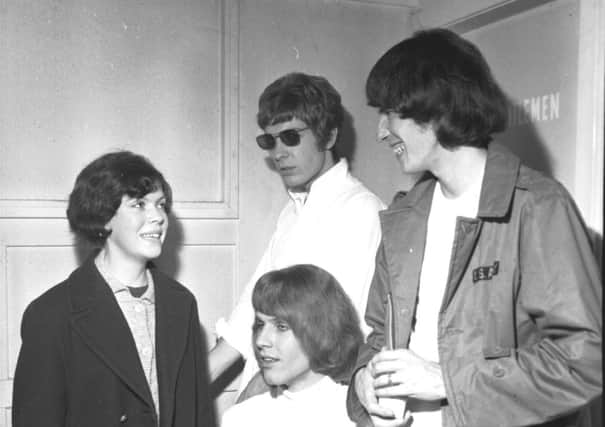Comment: Learn to forgive and forget


IN 1975 Scott Walker, as lead singer of the Walker Brothers sang, “There’s no regrets, no tears, goodbye”, while sounding like he was the most sorrowful man in the world. As he topped the charts I left my teenage years behind. Now I’m applying for my bus pass.
I wondered even if No Regrets didn’t cheer up Scott, maybe it could work for all those who become suddenly conscious that time is passing?
Advertisement
Hide AdAdvertisement
Hide AdFor a start “no regrets” deals with what’s done in a way that “I will do better with what’s left” doesn’t even begin to address.
CONNECT WITH THE SCOTSMAN
• Subscribe to our daily newsletter (requires registration) and get the latest news, sport and business headlines delivered to your inbox every morning
One certain way to poison the time ahead is to carry forward all our grumps, groans and guilty feelings gathered along the road already travelled. There are things we shouldn’t have done which we did and the things we should have done which we didn’t. These regrets need to be dumped.
Sometimes before we head for the emotional coup we need to make a detour round the people we’ve offended or let down. Sorry Seems To Be The Hardest Word (Elton John, 1976), but hard or not, there are times when it has to be uttered.
There are regrets which you have no right to throw in the skip before you apologise. But there are other ‘don’ts’ that we’ve done and ‘do’s’ that we didn’t do which can go straight into the recycling.
People who haven’t noticed you have let them down don’t always benefit from you flagging up your failure. We can cause our loved ones more grief by our confessions. Sometimes you just need to say to yourself that what’s done is done.
The Lord’s Prayer says “Forgive our sins as we forgive the sins of others” but we also need to forgive ourselves.
Plus, there are the sacks filled with regrets about the opportunity for good that you missed that has now vanished, the very evident ways in which I have not kept to the diet, stayed away from the bar, visited the gym, topped up my ISA and so on. There’s no point in humphing them into the future. “When it’s gone, it’s gone” (Boots online). No regrets, no tears, goodbye.
Advertisement
Hide AdAdvertisement
Hide AdSay sorry if you think it might make someone else feel better – not just to ease your conscience. When you can’t or shouldn’t say sorry – throw away the sins of omission and commission you cannot do or undo. A Christian would say accept God’s forgiveness, but whatever you believe in, believe that carrying forward bitterness and recrimination is no way to enjoy tomorrow. No regrets, no tears, goodbye.
Which brings me to my free-travel future. One of the things (maybe the only thing) that makes me tidy up is the thought that if I don’t do it now it will only be worse when I eventually reach for the black plastic bag. The aim of having no (or at least fewer) regrets to jettison is, for me, a stronger incentive for better living than pledges which I know I will not keep.
So as I turn the corner of another decade I mean to keep that thought in mind. A few centuries before Scott Walker, St Paul said, “For I do not do the good I want to do, but the evil I do not want to do – this I keep on doing.” If it’s not a heresy, as I take the costless coach to wherever, I want to be nearer Scott’s experience than Paul’s – no regrets. Well, not too many.
Would we not all journey forward more considerately if we remembered the difficulties we have in saying sorry and letting go and accepting forgiveness?
Starting my 60s will be easier if I don’t have a barrow-load of shame and rancour to hurl up to the psychological land-fill site.
Waiting for the magic plastic passport to a fare-less future, I’m more aware than ever about limited time – am I going to waste those precious days?
I will meet many people – how can those encounters be good and helpful? I will have all sorts of experiences, pleasant and less so. Will I learn from them or keep making the same mistakes? How do I travel so that I don’t end up moaning about what I should and shouldn’t have done?
I would love to say (perhaps even sing) on the top deck of the 33 bus, “No regrets, no tears, goodbye”.
Advertisement
Hide AdAdvertisement
Hide AdLike Mr Walker there may be in my voice a hint that I have not entirely succeeded, but I’ll give it a try.
• Rev Dr George Whyte is Acting Principal Clerk of the Church of Scotland
SCOTSMAN TABLET AND IPHONE APPS